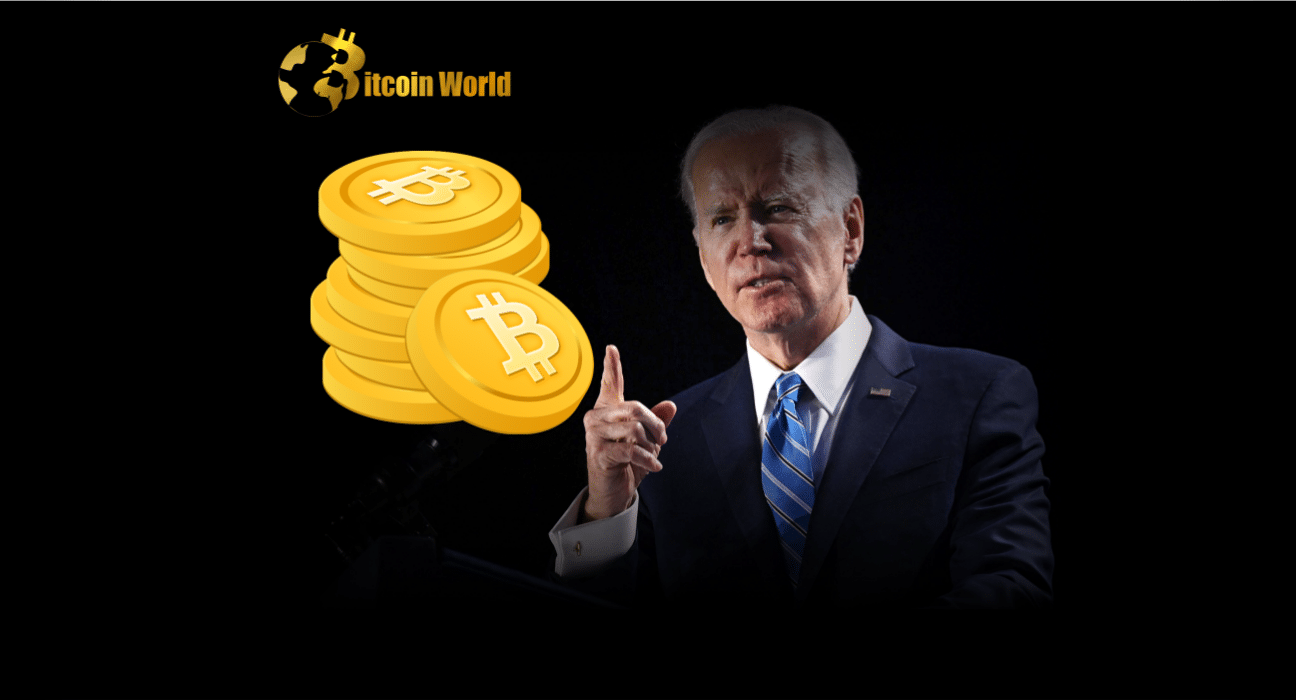Is the American dream for crypto innovation at risk? According to US House Republicans, the Biden administration’s approach to regulating crypto assets is casting a shadow over the burgeoning digital economy. They argue that current policies are not just hindering growth but actively threatening to push this trillion-dollar industry overseas. Let’s dive into the heart of this debate and understand what’s at stake for the future of crypto in the United States.
Why are Republicans Concerned About Biden’s Crypto Policies?
In a recent memo to the House Committee on Financial Services, Republican members expressed serious concerns about the Biden administration’s handling of the digital asset ecosystem. Their core argument? That the current regulatory environment, shaped over the past two years, is less about oversight and more about overreach, potentially crippling the crypto industry within the US.
To put things in perspective, the digital asset market is not small change. We’re talking about a market capitalization hovering around $1.06 trillion! Bitcoin and Ether alone constitute nearly 60% of this massive pie. Despite being in its early stages, the underlying distributed ledger technology is incredibly diverse and fuels numerous businesses and operations.
However, Republicans contend that the administration’s regulatory actions are creating an environment of uncertainty and hostility, pushing crypto businesses to consider relocating outside the US. This isn’t just about businesses moving; it’s about potentially losing out on jobs, innovation, and a leading position in the global digital economy.
What Actions by the Biden Administration are Under Fire?
While the specific actions aren’t detailed in this excerpt, the Republicans’ memo suggests a pattern of regulatory moves perceived as overly aggressive or unclear. They believe these actions:
- Exceed Legal Authority: Republicans suggest some regulations may overstep the legal boundaries of the agencies implementing them.
- Lack Clarity: The absence of clear, consistent rules creates confusion and makes it difficult for crypto businesses to operate and innovate compliantly.
- Hinder Innovation: Instead of fostering a space for growth, the current approach may be inadvertently stifling innovation and driving talent away.
The core message is that the US risks becoming a less attractive place for crypto businesses if the regulatory climate doesn’t become more supportive and predictable.
The Republican Solution: Clear Rules and Agency Cooperation
So, what’s the Republican prescription for this perceived regulatory ailment? They are advocating for a two-pronged approach:
- Clear Regulatory Rules: The call for clear rules is paramount. Businesses need to understand the boundaries and expectations to operate confidently and invest in the US market. This includes defining what constitutes a security versus a commodity in the digital asset space – a long-standing point of contention.
- Agency Cooperation: Republicans are pushing for better coordination between enforcement authorities and federal regulators. This aims to create a unified and consistent regulatory landscape, preventing conflicting signals and reducing compliance burdens. Imagine navigating a maze where different parts have different rules – that’s the challenge crypto businesses might be facing now.
They emphasize that Congress must take legislative action to bring much-needed transparency to the digital asset ecosystem. This isn’t just about easing regulations; it’s about creating a framework that fosters responsible innovation while protecting consumers and the integrity of the financial system.
Why Does This Matter to the Crypto World and Beyond?
This debate isn’t just political maneuvering; it has real implications for the future of crypto and the broader financial landscape. Here’s why you should care:
- Innovation Hub at Risk: The US has historically been a global leader in innovation. If crypto businesses are forced to move elsewhere due to unfavorable regulations, the US could lose its edge in this transformative technology.
- Economic Impact: The digital asset ecosystem represents a significant economic opportunity. Driving businesses away means losing potential jobs, investment, and tax revenue.
- Investor Confidence: Regulatory uncertainty can shake investor confidence in the crypto market. Clear and balanced rules are essential to attract institutional and retail investment.
- Global Competition: Other countries are actively working to attract crypto businesses with clear and supportive regulations. The US risks falling behind if it doesn’t adopt a more constructive approach.
What’s Next? The House Subcommittee Hearing
This memo was released just ahead of the House Subcommittee on Digital Assets, Financial Technology, and Inclusion’s opening session on March 9th. The topic of debate? The Biden administration’s “assault on the digital asset ecosystem.” This hearing signals that the Republican party is making crypto regulation a key issue, and we can expect further discussions and potentially legislative efforts to address their concerns.
In Conclusion: Finding the Right Balance for Crypto’s Future
The core of the issue isn’t about being pro or anti-crypto. It’s about finding the right balance between regulation and innovation. Republicans are urging a more supportive and clear regulatory framework that allows the digital asset ecosystem to thrive in the US, rather than be stifled or forced offshore. As the debate unfolds, the future trajectory of crypto in America hangs in the balance. Will the US become a welcoming hub for digital asset innovation, or will it cede ground to more crypto-friendly nations? The coming months and legislative actions will be crucial in shaping the answer.
Disclaimer: The information provided is not trading advice, Bitcoinworld.co.in holds no liability for any investments made based on the information provided on this page. We strongly recommend independent research and/or consultation with a qualified professional before making any investment decisions.


